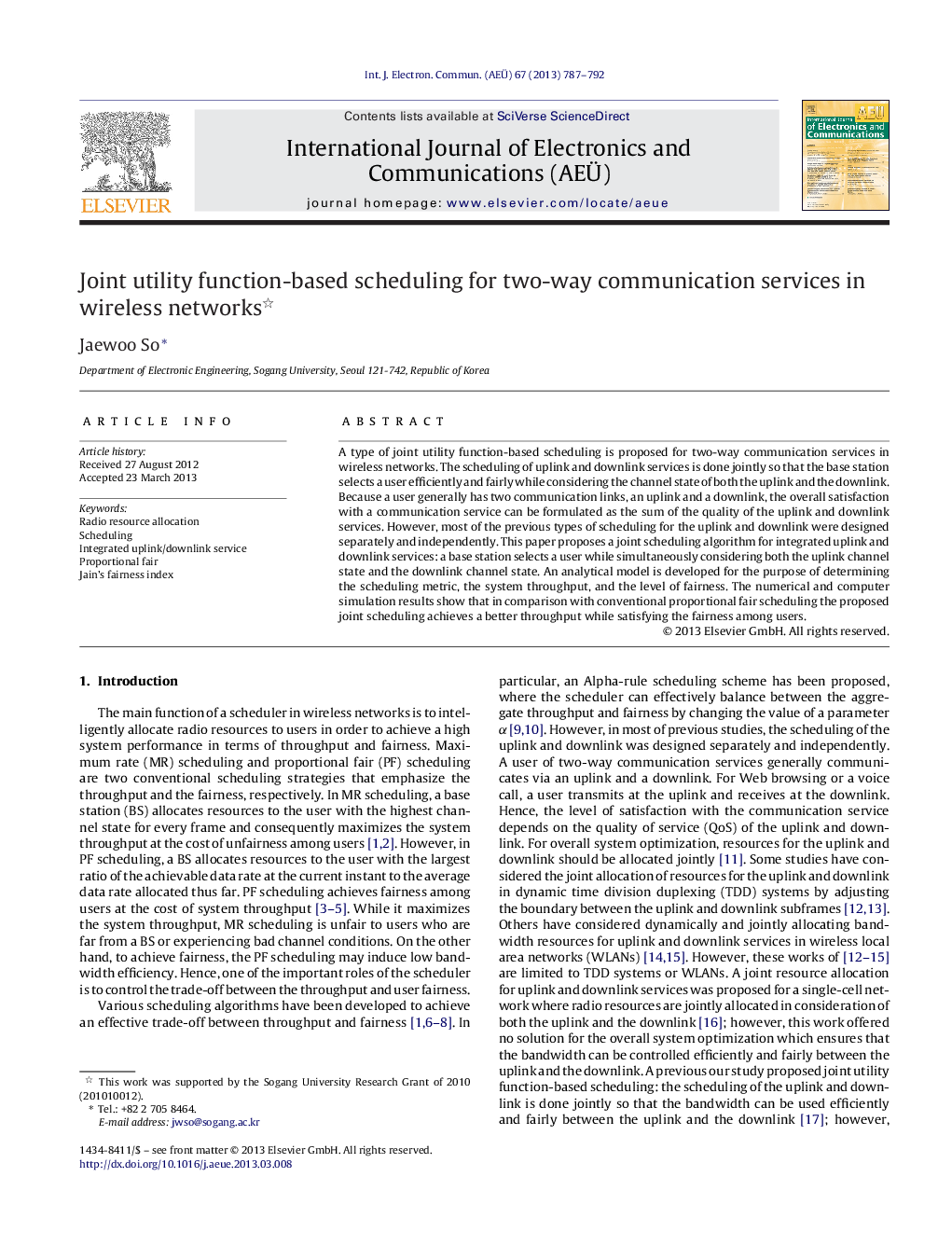| کد مقاله | کد نشریه | سال انتشار | مقاله انگلیسی | نسخه تمام متن |
|---|---|---|---|---|
| 445095 | 1443169 | 2013 | 6 صفحه PDF | دانلود رایگان |

A type of joint utility function-based scheduling is proposed for two-way communication services in wireless networks. The scheduling of uplink and downlink services is done jointly so that the base station selects a user efficiently and fairly while considering the channel state of both the uplink and the downlink. Because a user generally has two communication links, an uplink and a downlink, the overall satisfaction with a communication service can be formulated as the sum of the quality of the uplink and downlink services. However, most of the previous types of scheduling for the uplink and downlink were designed separately and independently. This paper proposes a joint scheduling algorithm for integrated uplink and downlink services: a base station selects a user while simultaneously considering both the uplink channel state and the downlink channel state. An analytical model is developed for the purpose of determining the scheduling metric, the system throughput, and the level of fairness. The numerical and computer simulation results show that in comparison with conventional proportional fair scheduling the proposed joint scheduling achieves a better throughput while satisfying the fairness among users.
Journal: AEU - International Journal of Electronics and Communications - Volume 67, Issue 9, September 2013, Pages 787–792